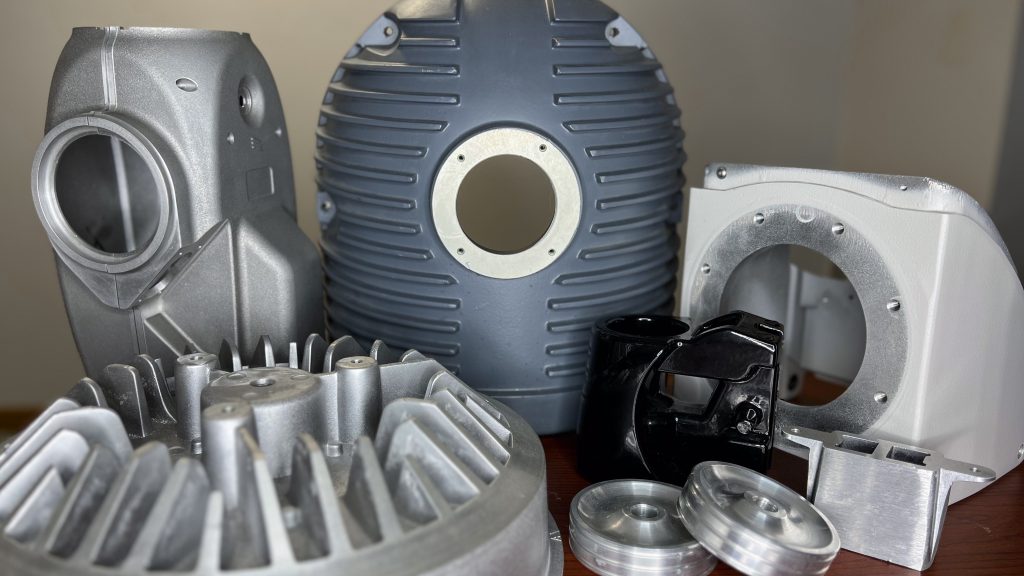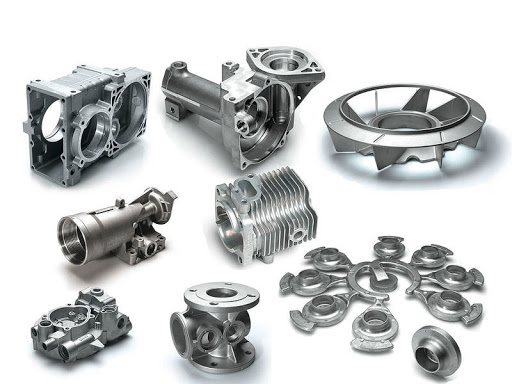The role of Aluminum Foundry technology in industrial production
The Many Uses Aluminum Castings: A Comprehensive Guide for Market Professionals
Aluminum castings play a crucial duty throughout numerous industries, thanks to their special residential or commercial properties. These sturdy and lightweight components are essential in automotive and aerospace applications. Comprehending their benefits and the production procedures included can considerably influence performance and efficiency. As modern technology advancements, new technologies remain to arise. Sector specialists must think about these factors to make enlightened options. The implications of these growths deserve exploring further.
Advantages of Light Weight Aluminum Castings in Different Industries
Aluminum spreadings offer numerous benefits across numerous industries, making them a preferred option for lots of applications. One of the key advantages is their light-weight nature, which adds to general energy performance in transport and machinery. This decreased weight also boosts simplicity of taking care of and installation, leading to lower labor prices.
In addition, light weight aluminum castings show outstanding corrosion resistance, expanding the lifespan of elements in rough settings. Their thermal and electrical conductivity permits effective warm dissipation and reliable electrical applications.
In addition, aluminum can be conveniently alloyed and adjusted, enabling the production of complex forms and designs that fulfill certain engineering needs. This convenience sustains innovation in sectors such as auto, aerospace, and consumer items.
Lastly, the recyclability of light weight aluminum aligns with sustainable practices, making it an eco-friendly alternative for modern manufacturing. In general, the advantages of light weight aluminum spreadings place them as essential products in numerous fields.
Secret Manufacturing Processes for Aluminum Castings
A range of manufacturing processes are made use of to develop light weight aluminum castings, each customized to fulfill certain application requirements and production volumes. Among one of the most usual approaches are sand spreading, pass away casting, and investment casting.

Financial investment casting, additionally called lost-wax spreading, supplies extraordinary surface area coatings and detailed information, typically utilized for smaller sized, precision components. Furthermore, gravity casting utilizes the force of gravity to fill mold and mildews, appropriate for larger castings where precision is much less important. Each process has its advantages, satisfying diverse industrial demands while optimizing performance and quality in aluminum spreading manufacturing.
Applications of Aluminum Castings in Automotive and Aerospace
In many applications within the aerospace and automobile sectors, aluminum spreadings play a crucial role because of their lightweight residential properties and superb strength-to-weight ratio. In the vehicle sector, components such as engine blocks, transmission cases, and wheel edges are commonly produced utilizing light weight aluminum castings. These parts gain from reduced weight, leading to enhanced gas effectiveness and enhanced efficiency.
In aerospace, light weight aluminum spreadings are vital for structural elements, including airplane structures, landing equipment, and engine real estates. The material's resistance to deterioration and ability to withstand heats make it optimal for these requiring applications. Furthermore, aluminum spreadings facilitate complicated geometries, making it possible for the design of intricate parts that add to overall aircraft efficiency.
Advancements and Innovations in Light Weight Aluminum Spreading Innovation
As sectors remain to advance, developments in aluminum spreading modern technology are driving substantial enhancements in performance and performance. Advanced methods such as 3D printing and spreading simulation software have changed traditional methods, permitting much more accurate styles and reduced waste. These technologies enable suppliers to create complex geometries that were formerly unattainable, improving the flexibility of aluminum castings.
In addition, the development of new alloy compositions and therapy approaches has actually improved mechanical properties, making spreadings lighter yet more powerful. Automated processes are additionally being integrated, reducing human error and boosting manufacturing rate.

Ideal Practices for Choosing and Using Aluminum Castings
When choosing and making use of light weight aluminum spreadings, careful factor to consider of specific criteria can significantly impact the end product's performance and long life. Industry experts should analyze the particular application needs, consisting of load-bearing abilities, deterioration resistance, and thermal conductivity. Choosing the proper alloy is important, as various alloys use differing staminas and qualities.
Furthermore, understanding the spreading procedure-- whether sand spreading, pass away spreading, or investment spreading-- will certainly influence the end product's quality and cost-effectiveness. Quality control measures, such as non-destructive screening and dimensional examinations, are important to ensure that the spreadings satisfy market criteria.
Moreover, appropriate handling and storage space of aluminum castings can prevent damages, assuring peak performance. Teaming up with reputable providers who prioritize quality control can enhance the integrity of the finished components. By adhering to these best Learn More Here techniques, market specialists can optimize the advantages of light weight aluminum spreadings in their applications.
Regularly Asked Inquiries
What Are the Environmental Impacts of Light Weight Aluminum Spreading Manufacturing?
Light weight aluminum casting production can lead to significant ecological influences, consisting of greenhouse gas discharges, energy intake, and resource exhaustion. Furthermore, improper waste administration might result in dirt and water contamination, impacting regional environments and neighborhoods.
How Do Light Weight Aluminum Castings Compare to Other Metal Castings?
Aluminum castings are lighter and corrosion-resistant contrasted to various other steel spreadings like iron or steel. They offer superior thermal and electric conductivity, making them optimal for applications additional reading where weight and sturdiness are critical variables.
What Is the Expense Difference Between Aluminum and Other Products?
The cost of light weight aluminum castings typically varies from moderate to high, commonly extra economical than stainless-steel however costlier than some plastic options. Wisconsin Aluminum Foundry. Aspects such as manufacturing quantity, material, and complexity specs greatly affect overall pricing
Can Light Weight Aluminum Castings Be Reused?
Light weight aluminum spreadings can undoubtedly be reused. This procedure substantially lowers power consumption and environmental influence contrasted to creating new aluminum, making recycling an important practice in promoting sustainability and resource preservation within various industries.
What Precaution Should Be Taken During Aluminum Spreading Processes?
Throughout light weight aluminum spreading procedures, vital security procedures include wearing protective gear, ensuring correct ventilation, making use of heat-resistant devices, keeping devices, and following security protocols to avoid exposure to dangerous materials and decrease the risk of crashes. (Aluminum Castings)
Sand spreading includes creating a mold from sand, allowing for large spreadings and complicated shapes. Financial investment spreading, likewise known as lost-wax casting, offers exceptional this surface area finishes and intricate information, commonly utilized for smaller, accuracy components. Additionally, gravity casting uses the force of gravity to fill up mold and mildews, appropriate for bigger castings where accuracy is much less important. Furthermore, recognizing the casting process-- whether sand casting, pass away spreading, or investment casting-- will certainly influence the last product's quality and cost-effectiveness. Aluminum castings are lighter and corrosion-resistant contrasted to other steel castings like iron or steel.